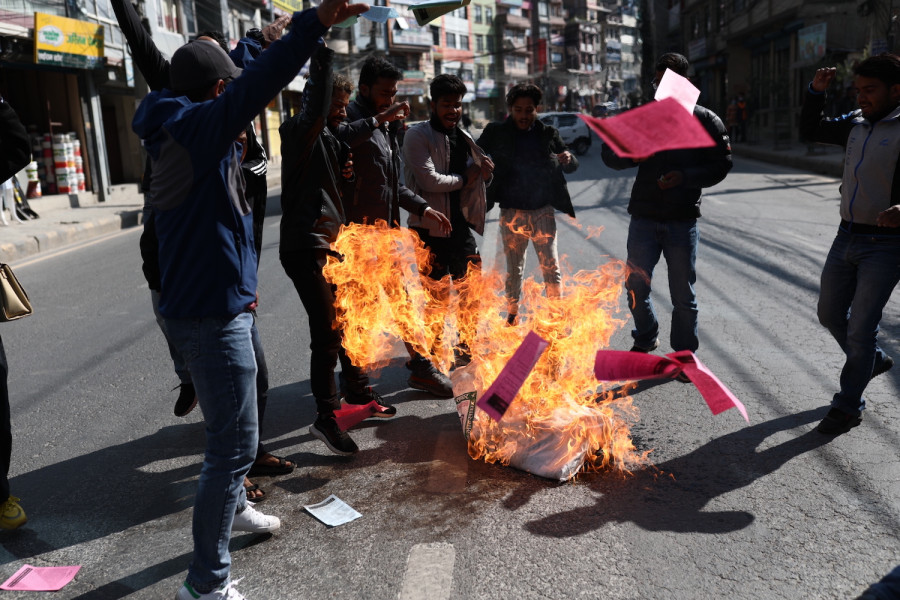Editorial
Travesty of activism
Political actors must find more creative ways than a 'banda' to protest a fuel hike.
Nepal banda is the most unimaginative form of protest, no matter what its driving force may be. When it comes to protesting against the government's decision to hike fuel prices, Nepal banda, which is a general shutdown, is unimaginative and predictable. And yet, Nepal banda presents itself in that same old avatar, no matter who is in government or the opposition. It is the lowest common denominator of Nepali politics, devoid of the capacity to engage in meaningful dialogue about democracy, the rule of law and justice. If there is one thing that seems to revitalise the moribund student politics of Nepal, even if for a few days, it is the hike in gasoline prices. Each time there is a price rise, there is bound to be a strike.
The call for Nepal banda imposed by the Netra Bikram Chand-led Communist Party of Nepal on Tuesday was yet another iteration of the same old tactic used by political actors of all hues in various times. The formula used remains unchanged for years: As soon as the government announces a hike, a political group or a student organisation either submits a memorandum to the incumbent minister or the prime minister, or brings out a torch rally, or obstructs government vehicles or calls for a nationwide strike—or a combination of all these. The protestors do not care as much about the fuel price as they do about polishing their own image about those who speak for the people. But it is the people that suffer the most from such protests, and they would rather that no such protest is organised in their name.
Rather than a genuine quest for solutions, the strikes emanate from a deep sense of insecurity among political actors about their political future. Bereft as they are of the capacity to think beyond the tried and tested idea of a banda, the political actors use it as a medium to make their own presence visible in the public sphere. That is as lame as it gets. But that is how they have sustained their politics for all these years and decades without mending their ways. The public, as usual, fails to question the ways of these political actors even if it is inconvenienced; and the government as usual, fails to provide security to those who defy such bandas. This mundane process is bound to repeat itself the next time Nepal Oil Corporation jacks up fuel prices.
And, the less said about the corporation, the better. It has the option of using the stabilisation fund to subsidise fuel to ensure that a price hike in the global market does not affect prices at home immediately. But the corporation, which has reportedly collected Rs13 billion in its price stabilisation fund, enough to finance the extra cost for at least three months, has failed to use the money. Only when the protests took shape did the corporation float the idea of using the fund, although it is not clear when it expects the idea to materialise. Until then, it is the public that continues to suffer from the insensitivity of the protesting groups as well as the corporation.




 8.67°C Kathmandu
8.67°C Kathmandu














